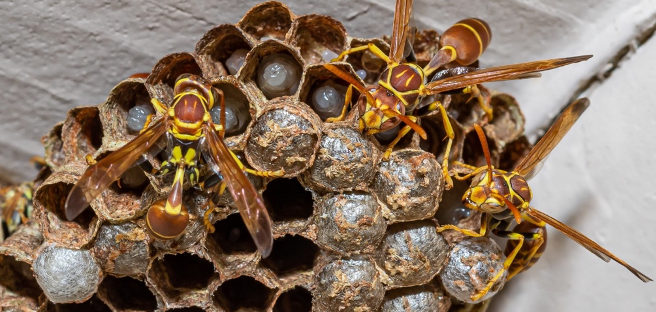
| |
| Home |
| Research |
| Teaching |
| People |
| Publications |
| Mentoring |
| Outreach |
| ROC Galapagos |
| Contact |
RESEARCH |
| Evolution and mechanisms underlying social behavior in paper wasps |
The benefits of cooperation are essential in driving group formation. However, an individual can gain significant fitness benefits by acting selfishly at a substantial cost to others in the group. Therefore, in species where most females are capable of direct reproduction, nestmates must find a balance between cooperation and conflict. We use the wasp Mischocyttarus mexicanus, a species with an intermediate level of sociality and local to South Florida, to understand the effect of the environment and social context on individual decisions of reproductive tactics by group members, group formation and dominance hierarchies. This species is distributed along a climatic gradient from subtropical South Florida to temperate South Carolina in the United States. More recently, we are exploring how this species can transition from subtropical populations to overwintering in temperate populations. How do populations adapt to local climatic conditions and seasonal timing? Which genes mediate adaptive responses to clinal variation in the environment? This project involves a collaboration with the Baudier Lab at the University of Southern Mississippi, and students at the UR. |

|
| M. mexicanus images, including the lab banner, by Roel Fleuren at sciencetransmitter.com |
See some of the press this work has received: |
| Back to Research Page |